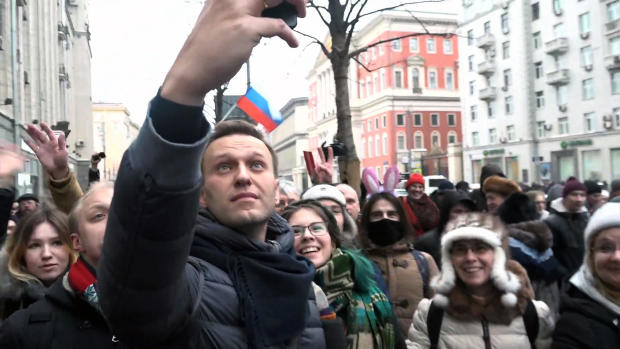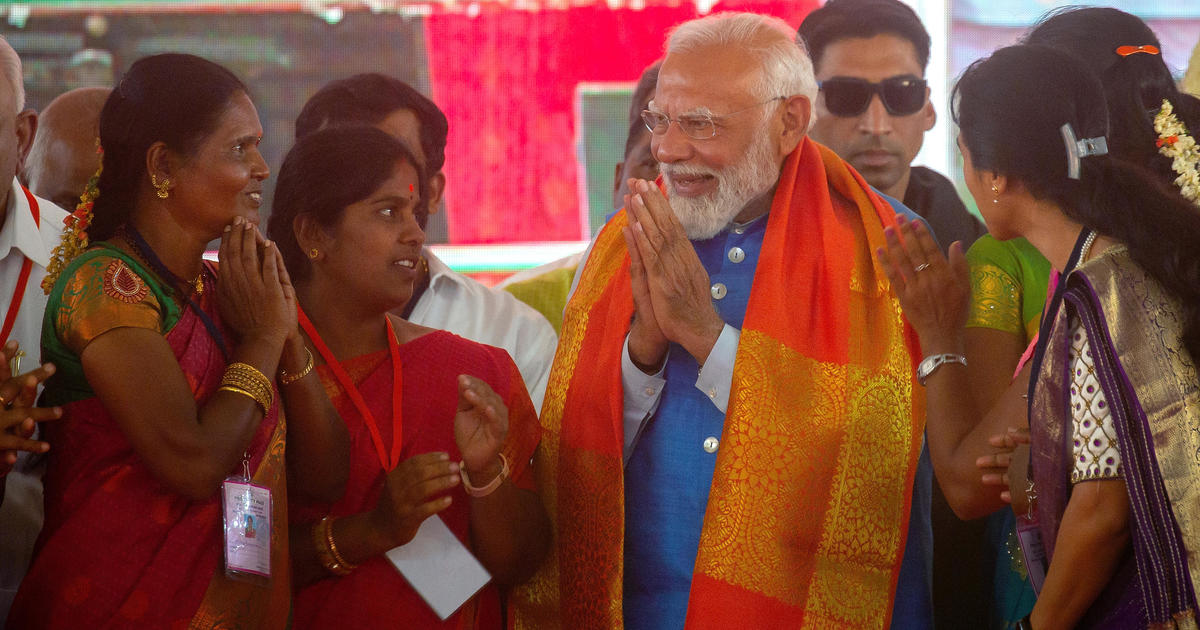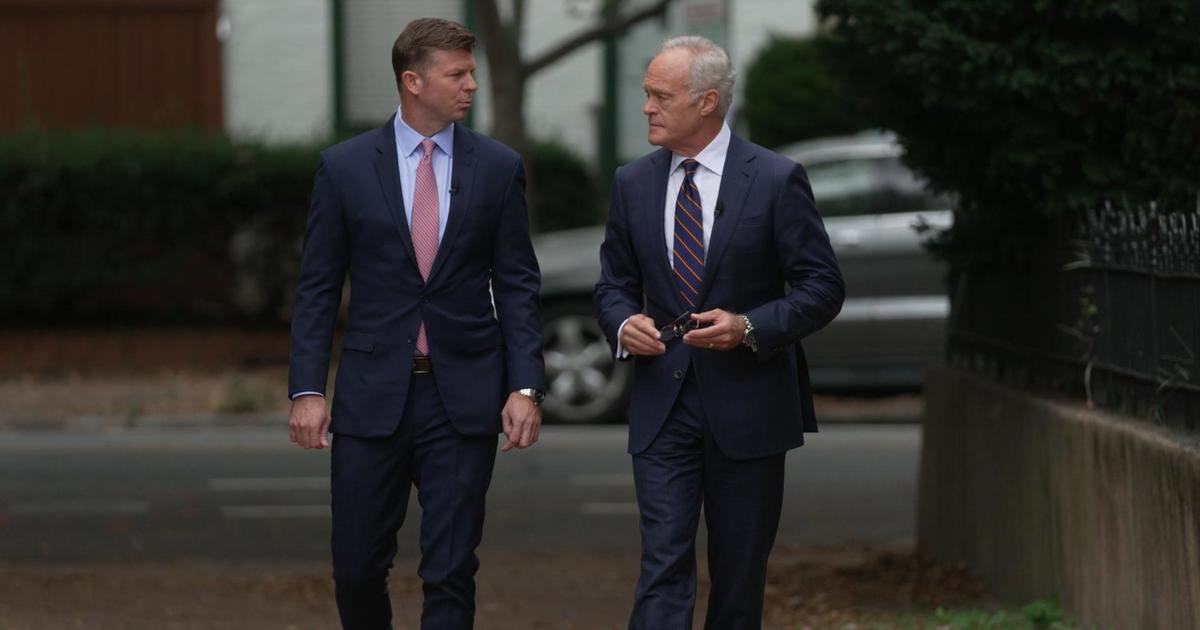Disappointment is drowning Russian dreams of democracy
MOSCOW -- Just minutes after Russian opposition leader Alexei Navalny showed up to march with other demonstrators on Sunday, the police moved in. They arrested him on grounds that he hadn't got the right permit for the protest.
Thousands of his followers in Moscow, and across Russia were on the streets. You only had to spend five minutes in the crowd to feel the rage and frustration of Russians who really dislike President Putin and his government, but they are facing an election in just a few weeks that will hand him another six year term.
The turnout was smaller than at previous Navalny rallies. Organizers estimate that about 5,000 people turned out across Russia, compared to, for example, a total of more than 60,000 last March.
The fall in numbers may have been in part due to Navalny's call for voters to stay home on polling day. Not everyone agrees with that. The fact is, if huge numbers of voters don't cast their ballots, Putin's margin of victory will be even higher.
But there is also widespread frustration with Navalny himself. Many of the young protestors who came to the rallying points in central Moscow on Sunday found nothing but large crowds milling around aimlessly. There was no focus for the protest. No speeches, no designated marching route and no leadership.
In fact, it felt to some as if they were being used as a backdrop for Navalny's arrest, which of course went viral on social media and which reinforced his credibility as an anti-establishment crusader.
I asked Igor Zhukov, a university student, whether he was disappointed with the turnout.
"Yeah," he said. "Of course."
The trouble with these protests, Igor told CBS News, was that the opposition supporters end up standing around wondering how to make their point.
"We've had four (of these demos in the past year) already, and nothing happened," he lamented. "We end up standing around. People end up disappointed."
Igor and his friends said they had studied American professor Gene Sharpe's principles of non-violent resistance. At Sunday's protest they had come with flowers which they were handing out to police to make the point that all Russians should stand together peacefully in combating corruption and political abuse.
Asked if he would stay home on voting day, Igor said he disagreed with Navalny's boycott idea. He was going to vote, but spoil his ballot to show his opposition to Putin.
Nearby, Natasha, another student, said she would do the same thing.
She was angry that Navalny has been barred from running against Putin in the March 18 elections as she would have voted for him, even though he's not the ideal candidate for her.
"He is a leftist," she explained, while she is a libertarian. "His program is not really sophisticated. He just wants to gain masses right now."
But for Natasha, and thousands more desperate for change, Navalny could at least mark the turning point for Russia -- the beginning of a pivot from an authoritarian oligarchy into a democracy.
No one believes that's going to happen as long as Vladimir Putin is in power.
"Putin would never allow it," Natasha said. "He wants to be our leader forever."





